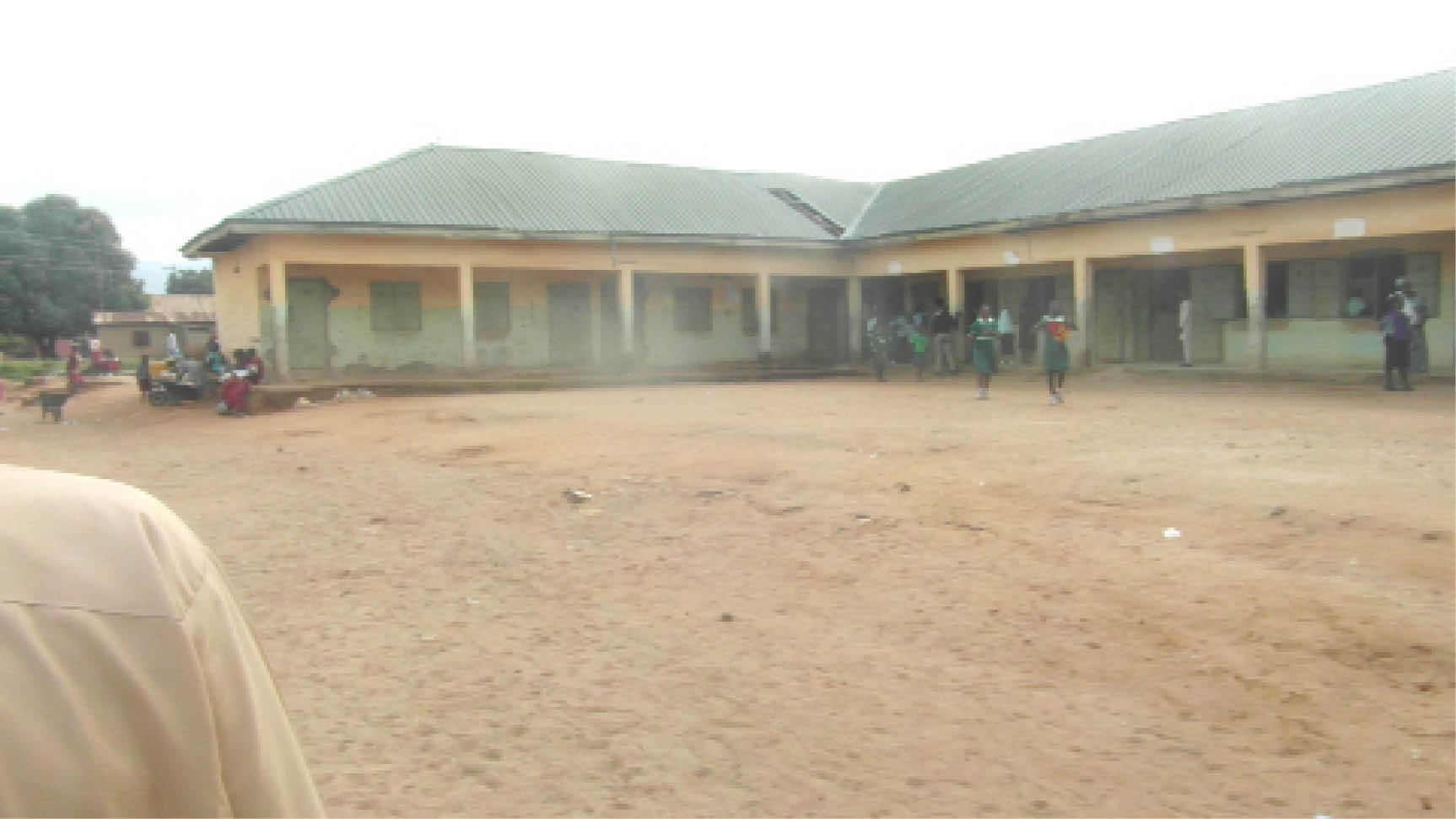Nyanya is Abuja’s last bubbling district just before the boundaries of neighbouring Nasarawa.
Its bridge is popular among hundreds of thousands of commuters who live in Nasarawa and cross into Abuja every day for work. It is a “clover leaf” intersection, actually.
The right side curves upward, then loops over the “bridge”, and rolls down toward a road side market. Around here is where the sleekly tarred road ends. The rest of the way is riddled with potholes and makeshift landfills to help cars navigate. The potholes turn deeper, the landfills higher until they open onto a landscape that seems so unlike Abuja.
It is Gbagalape, right in the heart of Abuja Municipal Area Council, and it is definitely Abuja.
Abuja is one of the world’s purpose-built cities, and one of the fastest growing. It comes with the glitz, glamour and razzmatazz of any modern city in the world.
In 2006, its population stood at 776, 298 inhabitants. By 2016, more than six million people had inhabited its metropolitan area, packed with expensive real estate out of the reach of average workers.
Development control and resettlement forced many residents out. Hundreds of thousands are squeezed into urban slum communities, like Gbagalape. The city dwellers forced to relocate have mingled with local tribal communities.
The result is urban slums with little order and government presence, living in the shadow of Abuja’s splendour but forgotten. And their numbers are growing.
Safiya Umaru has worked almost 30 years in the Federal Capital Territory Administration, which governs Abuja. She is acting secretary of the FCT’s social development secretariat and has “never been here,” she says on her first visit to Gbagalape.
“It is amazing and shocking. Only health workers can trace here. Every nook and cranny, they know; yet we social workers don’t know.”
Drunk, dying, dead
No fences, no street signs, no proper roads, but everyone knows just how to get around. Motorbikes crawl up and down the lanes of Gbagalape.
Rolling hills frame the horizon and spill down into the community, filled with homesteads. In front of every other house sits a vat. The vats are famous for distilling fermented millet.
The end product is ‘burukutu’, a local alcoholic beverage that rivals industry-brewed beer and spirit in the rash of drinking joints across Gbagalape. It is considered a bestseller here. It is cheap – in a place filled with unemployed family heads – and wrecking homes.
“Our husbands, most of them have nothing to do. All they do is get the cheapest thing here, ogogoro. And they die early, leaving the women to suffer with the children,” says Sarah Shedrach.
A mother of three, with a carpenter husband who abstains from drink, she is not afraid of admitting her community’s problem.
Out on the street, she points to a building ahead. It looks innocent but behind it is a large drinking spot. It is 11am but the drinking has been on since daybreak, and will continue till evening, so long as the men can afford it.
The result comes later, she says, Of husbands going home drunk to molest wives, of men dying from excess alcohol consumption, of men already taken ill from excess alcohol but still drinking. Three have died this year, she recalls.
“Around us we have plenty widows due to such habits, and most have more than six children. They are left alone to suffer.
But that’s not all. Drinking is a slippery slope. Prostitution is rife. Among women are young girls already pregnant. Many boys and girls are out of school. The burden of caring for families gets so heavy sometimes, husbands just flee home, Shedrach explains.
“There are lots of complaints. Only few homes you enter here will tell you their husbands are trying, or they are paying their children’s school fees or really doing their duties as men in the house.”
Then there are the drugs: children as young as 11 and anywhere up to 25 aren’t going to school and “most of them are doing heroin, taking solution,” says John Onjefu, a resident who volunteers to mobilise the community those few times when nongovernment organisations visit.
“Most breed to be thieves. They just break into houses to pick laptops, anything, to sustain themselves. And when riots come, they are first to be used, because they are choleric in nature.”
He says the problem is the lack of a community support group for Gbagalape – another sort of mobilization that could bring skills and opportunity.
Gbagalape’s reality is “an issue of concern,” says Ali Zubairu, who is recognized as the community’s secretary.
“We know things are difficult this time around, which has made some of our youths to be unemployed. We are doing everything possible to see that we engage them in other activities that will keep them busy.”
“Gbagalape is Dubai compared to others”
Yebu and Yewuti are worlds apart. Both are tucked into corners of Kwali area council, one of the six that make up the Federal Capital Territory. Their stories of deprivation are in their health care.
In previous years, residents pooled money to pay for 10% of the cost of getting a culvert in. A World Bank project ponied up the extra 90% to make the community accessible.
But it still takes up to an hour off the highway to reach Yewuti. A health centre cited there is just a centre with the health taken out, according to residents.
For the past nine years, Kuran Bako has worked in that centre – without an examination couch or bed. Light has also been a big drawback until a “community connections campaign” listed it alongside five other centres to be gifted hospital equipment.
It only just got a six-point solar lighting system installed.
“Our women can come to hospital and proper attention given to them,” he says. “But those days, I take deliveries using candles and torchlight.”
Many remote areas are far from electricity. Electric poles line the roads, no cables. Health centres need electricity to maintain a cold chain needed to store vaccines. Paying for fuel to power a generator 24 hours a day is unthinkable. Solar power becomes something big.
So when the solar-powered lighting at the health centre in Yebu came on at night, it called for celebration, says Haruna Ibrahim.
With a diploma in community health, he works alone at the centre. That’s almost one hour and 15 minutes of driving through terrain perfectly rural, remote and rugged.
“I am cleaner, attendant, head of facility, record keeper,” he emphasizes. “We don’t have water here. We fetch water from nearby homes or borehole.”
Wuna is a long distance away in Gwagwalada, another council area. One day in June, a bus drove up to the health centre. Aidatu Tahiru met it. Residents of Wuna also came out to watch volunteers unpack a desk and chair, delivery bed, an examination couch and solar light system.
The paperboard packaging that wrapped the supplies was stripped off and discarded. One boy went after it, picking the pieces off the ground in excitement.
“I got a mattress,” he shouted.
A nurse on the team watching him said, “This is Abuja.”
Wuna is not the first posting for Tahiru. Previously, she’d worked in health centres that had better equipment.
“When I was posted to Wuna, everything was flat, no drugs, no beds. Women came for delivery and I took it on the floor,” she recalls.
“Later, I bought a mat. And then I used my money to buy a flat mattress. [Without light] I took deliveries in the dark,” she said on the day she spoke to Daily Trust.
“Last night, I took two deliveries using solar light.”
Solar light is a big deal in remote Wuna, Abuja. But that’s not the Abuja the rest of the world knows.




